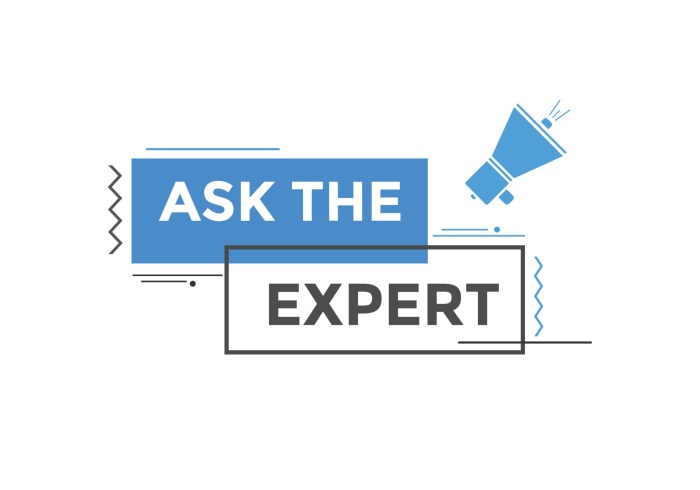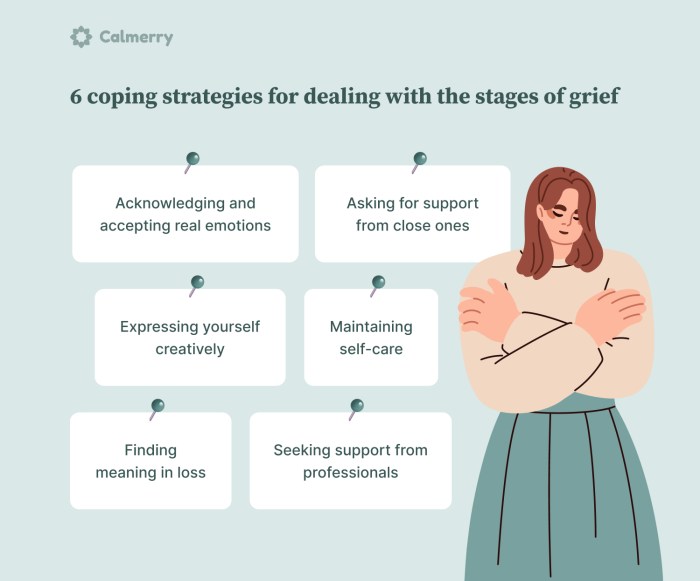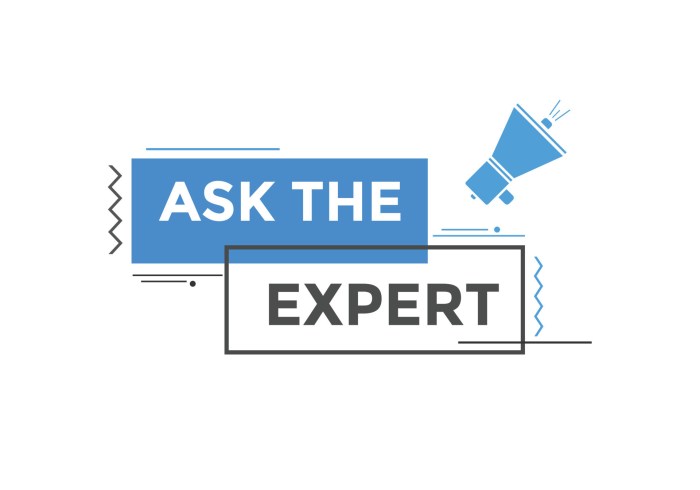How to ask for a promotion? This isn’t just about a title change; it’s about demonstrating your value and showcasing your readiness for the next level. This guide dives deep into the process, providing a structured approach to crafting a compelling case for your advancement. We’ll cover everything from understanding your performance and analyzing promotion criteria to preparing a persuasive presentation and managing the discussion.
Get ready to confidently navigate the promotion process and achieve your career goals!
We’ll break down the entire process into actionable steps, starting with a clear understanding of your achievements and how they align with the company’s needs. We’ll analyze the specific criteria for your promotion and show you how to create a strong argument for your advancement. We will even cover essential strategies for the presentation itself and how to manage any potential concerns or questions.
Understanding Your Performance
Knowing your performance is crucial for a successful promotion case. It’s not just about what you did, but how you did it, and the impact your work had. This section will help you articulate your contributions, highlighting your accomplishments, skills, and leadership to build a strong case for advancement.Understanding your performance isn’t about simply listing tasks; it’s about showcasing the value you brought to your team and the company.
This includes quantifiable results, evidence of exceeding expectations, and demonstrable leadership qualities. This approach helps demonstrate your readiness for a more significant role.
Quantifiable Results and Contributions
Understanding your quantifiable results is essential for demonstrating the impact of your work. Focus on measurable achievements, showcasing how your contributions have directly impacted the team or company. For example, if you increased sales, reduced costs, or improved efficiency, quantify these improvements.
- Increased Sales by 15% in Q3 2023: This was achieved through implementing a new sales strategy that focused on targeted customer segments and personalized outreach. This resulted in a significant revenue boost for the department and the company as a whole.
- Reduced Operational Costs by 10%: By streamlining workflows and identifying redundancies in our current procedures, I was able to decrease operational costs, improving overall profitability.
- Improved Team Efficiency by 20%: Through implementing a new project management system, I successfully streamlined communication and task delegation, which increased the team’s overall efficiency and allowed for more timely completion of projects.
Skills and Knowledge Development
This section details the skills and knowledge you’ve acquired that align with the promotion criteria. Highlight specific training, certifications, or self-study initiatives.
- Acquired Proficiency in Project Management Software: I have become proficient in using Asana and Jira, which has improved my project management skills, enabling me to effectively manage complex projects and deliver them on time and within budget. This significantly improved project delivery time and reduced the risk of delays.
- Earned Certified Scrum Master (CSM) Certification: This certification demonstrates my commitment to continuous improvement and my ability to lead and manage teams effectively. The CSM certification significantly improved my understanding of agile methodologies, leading to improved team dynamics and project outcomes.
Exceeding Expectations in Current Role
Illustrate how you consistently exceeded expectations in your current role. Provide specific examples of situations where your performance went beyond the required duties.
- Volunteered to Lead Cross-Functional Projects: I proactively volunteered to lead several cross-functional projects, demonstrating initiative and leadership skills beyond my current job description. This demonstrated the ability to manage multiple stakeholders and successfully deliver projects within budget and deadlines. For example, the “X Project” involved collaboration with Marketing, Sales, and Engineering teams.
- Developed a New Process for [Specific Task]: I recognized an inefficiency in our current [specific task] process and developed a new approach that streamlined workflows and saved [quantifiable amount] in time and resources. This demonstrated a commitment to continuous improvement and problem-solving.
Initiative and Leadership
Detail instances where you took initiative and demonstrated leadership. Quantify the positive impact of these actions.
- Mentored Junior Team Members: I consistently mentored junior team members, sharing my expertise and providing guidance, thereby developing their skills and boosting team morale. This fostered a positive learning environment within the team and contributed to improved overall performance.
- Spearheaded [Specific Initiative]: I took the lead in [specific initiative], demonstrating strong leadership skills and initiative in driving change within the company. This led to [quantifiable result], such as increased customer satisfaction or improved internal processes.
Relevant Training and Certifications
This section lists any relevant training or certifications you’ve completed. Highlight any certifications or training that directly support the skills needed for the promotion.
- Completed Advanced Excel Training: This training significantly improved my data analysis and reporting skills, which are essential for the promotion I am seeking. This led to a more efficient analysis of sales data, and faster reporting on key metrics.
- Attended [Specific Training Program]: Participation in this program improved my understanding of [specific skill] which is crucial for the promotion to [desired role]. This training directly aligned with the requirements of the desired role.
Analyzing the Promotion Criteria
Understanding the specific criteria for promotion within your company is crucial for tailoring your application and demonstrating your value. This involves not only identifying the required skills and experience but also aligning your accomplishments with the company’s strategic objectives and values. A clear understanding of these elements allows you to present a compelling case for advancement.
Promotion Criteria in [Company Name], How to ask for a promotion
The promotion criteria at [Company Name] are Artikeld in the employee handbook and are publicly available. These criteria typically encompass performance metrics, skill development, and alignment with strategic goals. Understanding the specific weight given to each factor allows you to focus your efforts on the most impactful areas.
Skills and Experience Needed for [Desired Position]
The [Desired Position] at [Company Name] requires a combination of technical expertise and soft skills. Essential technical skills include [list 2-3 key technical skills]. Proficiency in [list 2-3 relevant software/tools] is also highly valued. Furthermore, strong communication, leadership, and problem-solving abilities are paramount for success in this role.
Comparison of Current Skills and Experience
To effectively demonstrate your readiness for promotion, compare your current skills and experience against the requirements for the [Desired Position]. A structured comparison, such as a table, is beneficial. This allows for a clear demonstration of your strengths and areas for development.
| Skill/Experience | Current Proficiency | Requirement for [Desired Position] | Action Plan |
|---|---|---|---|
| Technical Skill 1 | Proficient | Expert | Seek advanced training in [Specific Area] |
| Communication Skills | Good | Excellent | Enroll in communication workshops |
| Leadership Experience | Limited | Significant | Volunteer for leadership roles within team |
Alignment with Company Values
Understanding and embodying the core values of [Company Name] is critical for a successful promotion. These values are often Artikeld in the company mission statement and internal communications. Demonstrating alignment strengthens your application and showcases your cultural fit.
Examples of Work Aligning with Strategic Goals
Illustrating how your work directly contributes to the company’s strategic goals is crucial. Identify specific projects or initiatives where your contributions have advanced the company’s objectives. Quantify your impact whenever possible.
- Successfully implemented a new process that reduced customer service response time by 15%.
- Led a team to develop a new product feature that resulted in a 10% increase in user engagement.
- Exceeded sales targets by 20% in the last quarter, contributing to the company’s revenue growth.
Crafting a Compelling Case: How To Ask For A Promotion

Securing a promotion requires more than just demonstrating competence; it demands a compelling narrative that showcases your value proposition and future potential. This section delves into crafting such a narrative, focusing on building a persuasive argument for your readiness for the next level. It Artikels how to leverage your strengths, articulate future goals, and demonstrate unwavering commitment to the company’s success.
Constructing Your Persuasive Argument
A compelling case for promotion hinges on articulating your achievements and demonstrating a clear understanding of the desired role. Highlight quantifiable results and concrete examples of how your contributions have positively impacted the team and the company. This showcases your value beyond simply fulfilling your current responsibilities.
Leveraging Your Strengths for Excellence
Identifying and showcasing your key strengths is crucial. Analyze your past successes and pinpoint the areas where you excel. Demonstrate how these strengths directly translate into the requirements of the next role. For example, if you excel in project management, provide specific examples of projects where you exceeded expectations, highlighting your efficiency and leadership.
- Proactive problem-solving: Detail instances where you identified and resolved issues before they escalated, minimizing negative impacts. Quantify the positive outcomes, such as cost savings or time efficiency gains.
- Teamwork and collaboration: Describe how your collaborative approach has fostered positive team dynamics and enhanced productivity. Include specific examples of projects where you successfully led or contributed to team efforts.
- Adaptability and learning agility: Showcase your willingness to embrace new challenges and technologies. Detail instances where you quickly adapted to changing circumstances or learned new skills relevant to the next role.
Alignment with Company Objectives
Demonstrating a clear understanding of the company’s strategic goals and how your aspirations align is vital. Research the company’s mission statement, values, and future plans. Highlight how your professional ambitions and future goals complement the company’s objectives. This showcases a commitment to the company’s long-term success.
- Identify key strategic initiatives: Research and understand the company’s current and future strategic plans. Focus on initiatives that directly align with your area of expertise.
- Demonstrate how your goals support the initiatives: Clearly explain how your future goals contribute to the successful implementation of these initiatives. Highlight specific projects or areas where your expertise can directly impact the company’s success.
- Present a clear vision for your contribution: Articulate how your career progression will benefit the company, demonstrating a shared vision for growth and advancement.
Defining Your Future Contributions
Artikel specific and measurable contributions you expect to make in your next role. Focus on how your skills and experience will drive tangible results. Quantify your projected impact, outlining how your efforts will benefit the company financially or operationally.
Want to nail that promotion? Knowing how to ask for a raise or promotion isn’t just about the request itself, it’s about demonstrating your value. Proactively asking insightful questions during the interview process is key. For example, understanding your company’s growth trajectory and future opportunities is crucial, like asking about potential career advancement pathways why you should ask these questions during job interviews.
This preparation showcases your initiative and ambition. Ultimately, asking the right questions in interviews sets you up for a stronger position when requesting a promotion down the line.
| Area of Contribution | Expected Impact |
|---|---|
| Increased Sales | Achieve a 15% increase in sales within the next fiscal year by implementing a new sales strategy focused on digital marketing and customer relationship management. |
| Improved Efficiency | Reduce operational costs by 10% by streamlining workflows and optimizing resource allocation. |
| Enhanced Team Performance | Increase team productivity by 20% by implementing a mentorship program and providing enhanced training opportunities. |
“A compelling case for promotion is not just about highlighting achievements, but also about demonstrating a clear understanding of the desired role and a commitment to the company’s future.”
Preparing Your Presentation
Crafting a compelling case for a promotion is crucial, but it’s equally important to present your case effectively. A well-organized and persuasive presentation can significantly impact the decision-making process. This involves more than just listing accomplishments; it’s about weaving a narrative that showcases your value to the company and aligns your aspirations with the needs of the role.A strong presentation demonstrates not only your achievements but also your understanding of the role and your potential contribution to the team’s future success.
This step involves transforming your insights into a clear and concise narrative that effectively communicates your value proposition.
Organizing Your Argument
A well-structured presentation is essential for conveying your value effectively. Begin by identifying the key points that support your promotion request. These points should be arranged logically, creating a narrative that showcases your progression, contributions, and future potential. Focus on demonstrating how your skills and experiences directly address the specific requirements of the new role. Use concise and impactful language to highlight your key achievements and their positive impact on the company.
Avoid jargon and overly technical language, ensuring clarity and understanding for all audience members.
Creating an Accomplishment Table
This table is a powerful tool to showcase your qualifications. It acts as a concise summary of your contributions, directly linking your achievements to the promotion criteria. By quantifying your results, you provide concrete evidence of your impact.
| Skill | Description | Quantifiable Result |
|---|---|---|
| Project Management | Successfully managed the “Project Phoenix” initiative, coordinating a team of 5 and delivering the project 2 weeks ahead of schedule. | Project completion 2 weeks ahead of schedule, saving $10,000 in project costs. |
| Problem Solving | Identified and resolved a critical technical issue impacting 15% of customer accounts, leading to a 15% reduction in support tickets. | 15% reduction in support tickets, improving customer satisfaction scores by 10%. |
| Team Leadership | Motivated and guided a team of 3 junior developers, leading to a 20% increase in code quality and a 15% improvement in project velocity. | 20% improvement in code quality and a 15% increase in project velocity. |
Relating Achievements to Role Requirements
Demonstrate how your past achievements directly translate to the responsibilities and expectations of the new role. Highlight specific projects where you successfully utilized the skills and experience required. Quantify your contributions whenever possible, using metrics and data to showcase the impact of your work. For example, if the new role requires leadership experience, detail projects where you took initiative and successfully guided teams to achieve specific goals.
Illustrating Leadership and Initiative
Providing specific examples of your leadership and initiative is crucial. Describe situations where you took the lead on projects, guided teams, and implemented innovative solutions. These examples should showcase your ability to drive results, think critically, and contribute beyond your assigned tasks. Focus on quantifiable results and positive outcomes that highlight your effectiveness. For instance, describe how your leadership on a specific project led to a significant improvement in efficiency or revenue.
Asking for a promotion can feel tricky, like navigating a minefield. You need a clear strategy, just like you need to be prepared for the hard truths about giving feedback to your partner. The hard truths about giving feedback to your partner highlight the importance of constructive criticism, which translates directly to presenting your case for a promotion effectively.
Ultimately, a well-prepared, respectful approach is key to both scenarios.
Summarizing Career Progression and Aspirations
Concisely summarize your career progression, emphasizing key milestones and achievements. Include your long-term career goals and aspirations. How do these goals align with the company’s vision and the opportunities presented by the new role? Clearly articulate your ambition and demonstrate your commitment to continued growth and development within the company. This will demonstrate your long-term commitment and show your eagerness to contribute to the company’s future success.
Practicing Your Delivery
Crafting a compelling case for a promotion is only half the battle. The other half is delivering that case effectively to your manager. Practicing your delivery is crucial to projecting confidence and demonstrating the value you bring to the organization. Rehearsing your presentation allows you to refine your message, anticipate potential questions, and build a strong narrative around your achievements and aspirations.
Articulating Your Value Proposition
Clearly articulating your value proposition is paramount. This involves concisely summarizing your key contributions, quantifying your impact whenever possible, and showcasing how your work directly benefits the company. For instance, instead of simply saying “I improved efficiency,” you could say, “By streamlining the workflow process, I reduced project completion times by 15%, resulting in a $10,000 annual savings for the company.” This quantifiable approach demonstrates tangible results and highlights your value.
Effective Communication Strategies
Utilizing effective communication strategies in previous scenarios can provide valuable insights. Consider past instances where you successfully advocated for a project or initiative. Analyze how you presented your ideas, the language you used, and the supporting evidence you provided. Did you tailor your approach to your manager’s communication style? Identifying successful patterns from previous experiences can provide a framework for your promotion discussion.
For example, if your manager prefers data-driven presentations, ensure your presentation is supported by relevant metrics and figures.
Handling Potential Objections
Anticipating potential objections or concerns from your manager is vital. Consider common concerns, such as concerns about your experience level, the need for additional training, or questions about your ability to handle increased responsibilities. Prepare thoughtful responses to these potential concerns, drawing on specific examples of your accomplishments and demonstrating your commitment to continuous improvement. For instance, if your manager expresses concerns about your experience with a specific software, showcase your initiative in learning new tools or your ability to quickly adapt to new technologies.
So, you’re aiming for a promotion? Knowing how to ask is key. Prepare a compelling case highlighting your achievements and how your skills align with the next level. Speaking of skills, did you know about these awesome bathroom hacks? 25 bathroom hacks youll want share with everyone will totally inspire you to think outside the box, which, by the way, is great for your promotion pitch too.
Ultimately, confidence and a well-structured request are your best weapons in this battle.
Delivering a Confident and Engaging Presentation
Delivering a confident and engaging presentation requires more than just knowing your material. Maintain good eye contact, speak clearly and concisely, and project enthusiasm for your role and aspirations. Use body language to emphasize key points and maintain a positive and professional demeanor. Practice your presentation in front of a mirror or a trusted colleague to refine your delivery and identify areas for improvement.
Key Talking Points
To structure your promotion discussion, identify key talking points that directly address the promotion criteria. These points should focus on quantifiable achievements, highlighting how your performance aligns with company goals and demonstrating your readiness for increased responsibilities. For example, if the criteria include leadership skills, detail specific instances where you took initiative in leading projects, mentored colleagues, or successfully guided teams towards achieving shared goals.
Consider a table summarizing your key accomplishments against the specific promotion criteria.
| Promotion Criteria | Key Talking Points |
|---|---|
| Leadership | Led team projects, mentored junior colleagues, successfully guided teams to meet goals. |
| Problem-solving | Resolved critical issues, identified process improvements, implemented solutions that resulted in measurable improvements. |
| Initiative | Took initiative in identifying and implementing new processes, contributed to strategic projects beyond assigned responsibilities. |
Managing the Discussion
Navigating the promotion discussion requires a proactive and thoughtful approach. It’s not just about presenting your accomplishments; it’s about demonstrating your understanding of the role, your commitment to the company, and your ability to address potential concerns. This phase is crucial for showcasing your readiness and securing the promotion. A well-structured strategy, anticipating potential questions, and a confident delivery can significantly impact the outcome.Successfully handling the promotion discussion goes beyond simply knowing your accomplishments.
It’s about demonstrating your understanding of the role, your commitment to the company, and your ability to address potential concerns. This section provides a framework for proactively addressing potential questions and concerns, showcasing your enthusiasm, and ensuring a positive outcome.
Handling Potential Questions
Anticipating your manager’s questions allows you to formulate thoughtful and prepared responses. This proactive approach demonstrates your preparedness and allows you to address any concerns head-on.
- A common concern revolves around your readiness for the next level. Addressing this proactively by highlighting specific skills developed, projects successfully completed, and mentorship opportunities sought demonstrates your competence and ambition.
- Prepare to discuss your understanding of the responsibilities and expectations associated with the promotion. Showcasing a clear understanding of the role’s requirements, as well as your enthusiasm for the challenges, is key.
- Demonstrating a strong understanding of the company’s goals and how your work aligns with them showcases your commitment and strategic thinking. Connect your contributions to the larger company objectives.
Addressing Concerns About Readiness
Demonstrating your readiness for the promotion is essential. Instead of simply listing accomplishments, frame your responses around how these experiences have prepared you for the next level of responsibility.
- Instead of saying “I’ve managed projects,” articulate, “I’ve managed projects of increasing complexity, culminating in the successful [Project Name] initiative, which directly demonstrates my readiness for the leadership responsibilities of this role.”
- Highlight specific examples of taking initiative and exceeding expectations. This could involve exceeding targets, implementing innovative solutions, or taking on additional responsibilities beyond your current role.
- Showcase your willingness to learn and adapt. Emphasize your proactive approach to seeking out training or mentorship opportunities, or how you’ve taken the initiative to develop new skills relevant to the role.
Possible Manager Questions and Responses
Anticipating potential questions and preparing thoughtful responses demonstrates your preparedness.
| Potential Question | Well-Structured Response |
|---|---|
| “What are your weaknesses?” | “While I’m strong in project management, I’ve identified a need to further develop my presentation skills. To address this, I’ve enrolled in a public speaking course and have already seen positive results in my team meetings.” |
| “How will you contribute to the team’s success?” | “My experience leading [Project Name] demonstrates my ability to motivate and guide team members toward achieving shared goals. I’m confident that my leadership style will be instrumental in fostering a collaborative and productive environment within the team.” |
| “What are your long-term goals with the company?” | “I’m committed to long-term growth within [Company Name]. I’m particularly interested in exploring opportunities for leadership development and contributing to the company’s strategic initiatives. This promotion would be a crucial step in achieving these goals.” |
Showcasing Enthusiasm and Commitment
Your enthusiasm and commitment to the company are crucial for a positive discussion. Let your passion shine through.
- Express genuine excitement for the opportunity to take on greater responsibilities. This genuine enthusiasm is infectious and demonstrates your dedication to the company’s success.
- Emphasize your commitment to the company’s values and mission. Align your personal values with the company’s, and show how you actively embody them in your work.
- Share examples of your dedication to the company. Highlight any initiatives you’ve taken to improve processes, contribute to the team, or go the extra mile for the company’s benefit.
Active Listening During the Discussion
Active listening is crucial. Pay attention to your manager’s feedback and questions. It demonstrates respect and helps ensure a productive discussion.
- Demonstrate your engagement by asking clarifying questions and summarizing key points to ensure you fully understand the concerns and perspectives raised.
- Show your attentiveness by maintaining eye contact and nodding appropriately during the discussion.
- Actively listen to understand your manager’s perspective, even if it differs from your own. This demonstrates your willingness to learn and adapt.
Following Up
A successful promotion isn’t just about the discussion; it’s about the ongoing commitment to the company’s growth. A well-structured follow-up plan demonstrates your value and ensures a positive trajectory in your new role. This phase solidifies the transition and lays the groundwork for future achievements.Demonstrating continued commitment goes beyond simply accepting the promotion. It involves actively contributing to the team’s success and showcasing your dedication to the company’s goals.
This section Artikels strategies to effectively follow up after the promotion discussion.
Maintaining a Positive Working Relationship
After the promotion discussion, maintaining a positive working relationship is crucial. Your interactions with colleagues and superiors should reflect professionalism and respect. This approach builds trust and fosters a collaborative environment. Open communication and a proactive attitude are essential components.
- Acknowledge the Feedback: Actively acknowledge any feedback received during the promotion discussion. Demonstrate your understanding and commitment to incorporating that feedback into your future work. This shows you value constructive criticism and are receptive to improving your performance.
- Proactive Communication: Maintain open communication with your manager and team members. Share updates on projects and address any concerns promptly. Regular check-ins foster a collaborative environment and allow for early issue resolution.
- Show Appreciation: Express gratitude to your manager and colleagues for their support during the promotion process. A simple thank you can go a long way in strengthening your professional relationships.
Demonstrating Continued Commitment
Following up on your promotion demonstrates your commitment and ensures your proactive contribution to the team. Showcasing your continued commitment involves more than just following instructions; it’s about understanding the bigger picture and anticipating needs.
- Proactive Project Management: Take initiative on projects and responsibilities, anticipating potential roadblocks and suggesting solutions. This proactive approach showcases your leadership qualities and commitment to achieving goals.
- Follow-up Communication: Send a thank-you email to your manager and key stakeholders after the promotion discussion. Briefly reiterate your commitment and thank them for their time and consideration. Schedule a follow-up meeting to discuss next steps if appropriate.
- Showcasing Next Steps: Prepare a brief plan detailing your immediate priorities in the new role. Share this with your manager, outlining how you plan to contribute to the team’s goals.
Importance of Continuous Professional Development
Continuous professional development is critical for career advancement and long-term success. Integrating professional development into your work routine involves consistent learning and skill enhancement. It’s about staying current with industry trends and acquiring new knowledge.
- Identify Learning Opportunities: Identify areas where you can enhance your skills and knowledge. This could involve attending industry conferences, workshops, or online courses.
- Seek Mentorship: Seek mentorship from experienced professionals in your field. Mentorship provides guidance, support, and valuable insights into industry best practices.
- Stay Updated: Stay updated on industry trends and best practices through reading industry publications, attending webinars, and engaging in online forums.
Follow-up Email or Meeting
A follow-up email or meeting, after the promotion discussion, is crucial for establishing a clear understanding of next steps. It reinforces your commitment and provides an opportunity to address any outstanding questions. It should clearly reiterate your enthusiasm and willingness to contribute.
- Content of the Email/Meeting: The follow-up email or meeting should reiterate your commitment to the new role, highlight your proactive approach, and request clarification on any outstanding questions.
- Next Steps Discussion: Use this opportunity to discuss next steps, including project assignments, responsibilities, and anticipated timelines. This clarifies expectations and sets the stage for successful performance.
Final Summary
In conclusion, asking for a promotion is a strategic process that requires meticulous planning and a confident presentation. By understanding your performance, analyzing promotion criteria, crafting a compelling case, and preparing a persuasive presentation, you’ll be well-equipped to successfully navigate the promotion discussion. Remember to follow up effectively and maintain a positive working relationship, demonstrating your continued commitment and professional growth.
This comprehensive guide equips you with the tools to confidently ask for and achieve your desired promotion.











